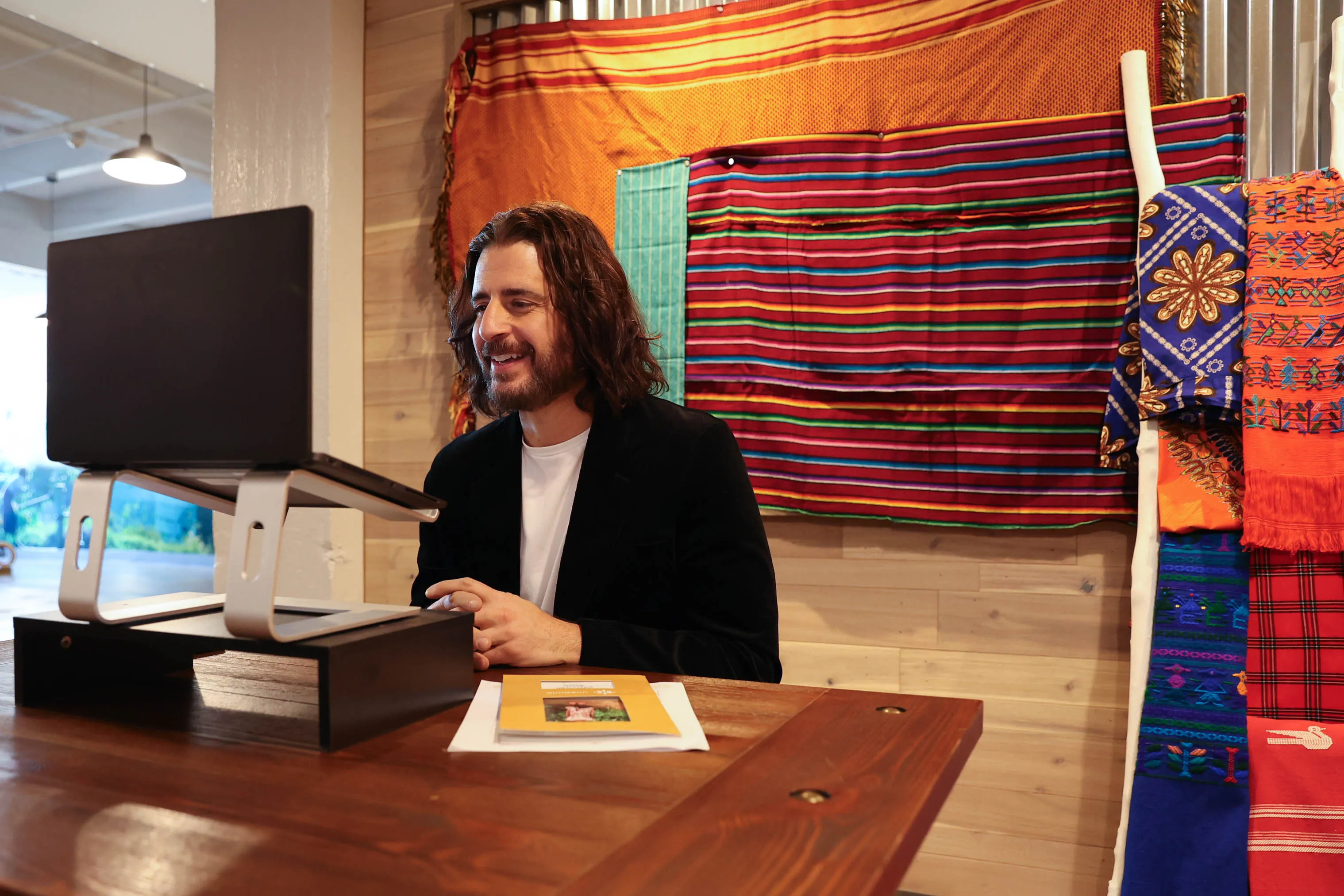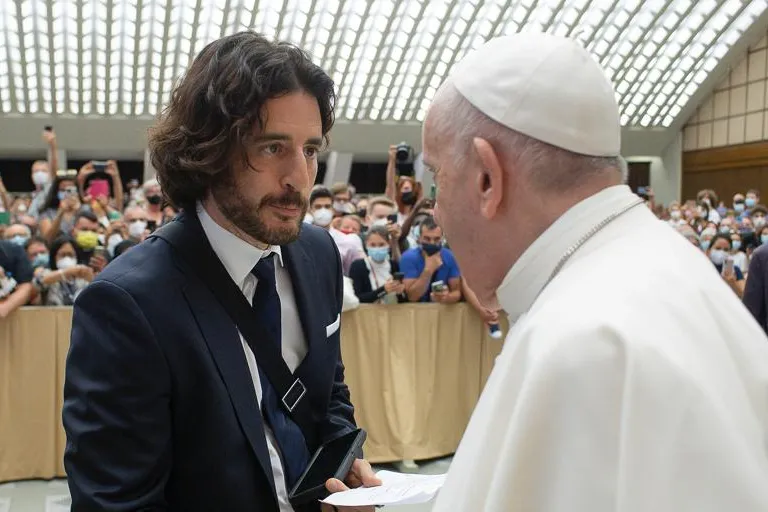
Rome Newsroom, Nov 22, 2022 / 08:10 am (CNA).
For the role of prefect of the Dicastery for the Oriental Churches, Pope Francis has chosen Archbishop Claudio Gugerotti, who since 2020 was nuncio to the United Kingdom.
The Italian prelate’s diplomatic career came about somewhat “by accident.”
As a specialist in Eastern liturgy and a fluent Russian and Armenian speaker, Gugerotti arrived in Rome to serve in the Congregation of Oriental Churches, where he had served as undersecretary before starting his career as “ambassador of the pope.”
His recent appointment came as a bit of a surprise, given Vatican rumors were convinced that Cardinal Leonardo Sandri, 79 years old and head of the dicastery since 2007, would remain the prefect until he was 80.
As a possible substitute, there was talk of Cardinal Dominique Mamberti, a longtime diplomat and former Vatican “foreign minister,” who is now prefect of the Apostolic Signatura — the Vatican’s highest judicial authority.
Gugerotti’s profile was among those considered possible prefects but considered unlikely. A little for his well-underway diplomatic career: in London since 2020, he had been sent — he explained in an interview with Vatican News — to continue the dialogue between Catholics and Anglicans. Partly because his fluent knowledge of the Russian language and culture made him, in the eyes of many, too close to Russia and, therefore, ineligible in times like these.
This reading, however, risks being superficial. Gugerotti is an expert on Ukraine, having been nuncio to Kyiv from 2015 to 2020. But he is also an expert on Russia and how Russian politics moves. So when as nuncio he spoke about the conflict in the Donbas region of Ukraine, long before the large-scale Russian aggression on Ukrainian territory, he did so in terms that very much reflected the diplomatic line of Pope Francis.
In the end, there are three reasons why Archbishop Gugerotti was chosen as prefect of the dicastery:
- His experience and knowledge not only of the Eastern Churches but also of post-Soviet politicians.
- His diplomatic doctrine.
- The role that the Dicastery for the Oriental Churches can play.
The experience of Archbishop Gugerotti
Gugerotti, 67, arrived in Rome to serve in the Congregation of the Oriental Churches after attending Eastern theology and liturgy for three years at the Institute of Ecumenical Studies in Verona.
He remained in the dicastery until 2001, becoming undersecretary in 1997.
Then, Pope John Paul II appointed him nuncio to Georgia, Armenia, and Azerbaijan, a position he held from 2001 to 2011. He was in Tbilisi when, in 2008, there was the Russo-Georgian War, and therefore he learned about the Russian way of operating.
In 2011, Benedict XVI appointed him nuncio to Belarus. There, he was able to visit political prisoners, negotiating directly with President Aleksandr Lukashenko. This confidence in the Belarusian president came in handy at the end of 2020 when Pope Francis sent him to Belarus to speak with Lukashenko and negotiate the return of Archbishop Tadeusz Kondrusiewicz of Minsk, who had gone abroad for a series of celebrations and was then prevented by authorities from returning to his homeland.
He had been unable to return home because — it was said — his passport had expired. Gugerotti succeeded in the mission, and Kondrusiewicz returned in time to celebrate Christmas, then left his place when he turned 75 on Jan. 3, 2021.
From 2015 to 2020, Gugerotti was nuncio to Ukraine. Unfortunately, he inherited a situation of conflict that arose following the Russian annexation of Crimea. Nevertheless, he was able to reach the conflict zones, even celebrating one Easter in the Donbas. In addition, he was among the coordinators of the “Pope for Ukraine” initiative. But, above all, he has consistently called for a Russian-Ukrainian reconciliation that goes beyond politics and political needs.
His ability to see competing perspectives is also due to his excellent knowledge of the Russian language and made him a candidate to hold the position of prefect of the Dicastery for the Oriental Churches.
Gugerotti’s positions on the war in Ukraine
To understand Archbishop Gugerotti’s diplomatic doctrine, one must reread his statements during the conflict in the Donbas region.
In December 2019, the Paris summit brought together Russian President Vladimir Putin and Ukrainian President Volodymyr Zelenskyy, with French Prime Minister Emmanuel Macron and then German Prime Minister Angela Merkel in the French capital.
Commenting on the results of that meeting, Gugerotti stressed that “Ukraine, in the conflict territories in the Donbas,” needs to live “a true experience of reconciliation; otherwise, there is no way out. So the situation is buffered, but an open-air cemetery is preserved.”
Even then, the nuncio said that the conflict represented “a situation of eternal precariousness. The bombing continues.” Gugerotti noted how this affected children and how it was difficult to find medicines and food, and to ensure heating.
In short, the nuncio decried the pathological precariousness of the situation.
Gugerotti also asked Europe to be less distracted, even just “for the moral commitment” it had, given that Ukraine had chosen European values: ”A choice that costs a lot in terms of human lives and a very high economic price.”
Europe was involved, the nuncio said, because it had an ongoing conflict that put its borders at risk. But above all because — “and this must be said,” he added — some Western mercenaries were also fighting in the Donbas: Italians, Germans, French, and Americans.
The Italian prelate also said “the tragedy of this conflict is general forgetfulness.”
In April 2018, Archbishop Gugerotti issued an appeal to Europe.
“If Europe thinks of solving its problems by looking only at its internal issues, it will not only fail to solve them but will be crushed by external pressure,” he said.
“There is a conflict at the gates of Europe, but Europe is too busy with national problems and the difficulty of being together to notice,” Gugerotti said. “If international solidarity is not rediscovered as a means to reestablish a minimum of common law, to guarantee a minimum of justice and equity, not only will we not save ourselves, but we will let other people perish and then repent in the future for not having seen.”
Calls for reconciliation can be challenging to digest for people experiencing an invasion.
At the same time, Gugerotti had also expressed some concern over the joint declaration between Pope Francis and Patriarch Kirill, signed in Havana on Feb. 12, 2016. While the pope defined it as “pastoral,” critics read the statement as biased toward Russian positions.
The role of the Dicastery of the Oriental Churches
By choosing Gugerotti, Pope Francis presumably wanted to inform the work of the Dicastery for the Oriental Churches with a view to initiatives concerning the war in Ukraine.
The appointment came as a surprise, with an addition to the bulletin, and was announced personally by the pope during the interdicasterial meeting underway the morning of Nov. 21.
Although Gugerotti was naturally a candidate for the post, the appointment has the flavor of being one of the pope’s sudden choices, taking others by surprise.
But this kind of choice presupposes that the pope already had a plan.
First, Pope Francis wanted a diplomat to lead the dicastery, so it stayed active at the diplomatic level. In this, Gugerotti is a disciple of Cardinal Achille Silvestrini, another Italian and diplomat, who served as prefect of the Congregation of the Eastern Churches — and succeeded Cardinal Sandri.
From this perspective, the pope wanted to signal to Russia he was appointing a known nuncio who was not considered hostile. It should be remembered that the dicastery for the Ukrainian Greek Catholic Church is the Dicastery for the Oriental Churches.
Finally, the pope needed a diplomat who supported his line of neutrality but who at the same time showed sympathy and understanding for Ukraine.
It remains to be seen how all this will take shape and impact the diplomatic role of the Holy See in the ongoing conflict.
Pope Francis, as we know, has always asked for mediation. And Archbishop Gugerotti, a possible key interlocutor with the Russians, will take over the task. After all, Gugerotti has already met with both Russian Foreign Minister Sergey Lavrov and Russian President Vladimir Putin.
Then there is a further clue. On March 5, Gugerotti attended a pro-Ukraine demonstration in London’s Trafalgar Square. The nuncio said: “We are all Ukrainians.” His words may also represent the sentiments of Pope Francis, who authorized his nuncio’s presence at the event.
So, Gugerotti has already played the role of the pope’s voice. He will be called to do it again.
If you value the news and views Catholic World Report provides, please consider donating to support our efforts. Your contribution will help us continue to make CWR available to all readers worldwide for free, without a subscription. Thank you for your generosity!
Click here for more information on donating to CWR. Click here to sign up for our newsletter.









Archbishop Gugerotti is an excellent choice both in his knowledge of the cultures and his objective assessments for a much needed compromise solution to end the continuing devastation, and nuclear threat.
For either side to aim at complete defeat of the other is both unrealistic and dangerous. Although Russia made an immoral decision to attack Ukraine, both sides have grievances, both are responsible for the dynamics leading to the conflict. A just peace always requires mutual recognition of grievances and the need to amend.
I find this article to be thinly sourced, inadequately substantiated, and disingenuous in its reporting of what is widely understood today to be the deeply corrupt and incompetent Vatican in which this event occurs. For example, I would be far more interested to learn an outside native Russian-speaking or Armenian-speaking Orthodox prelate’s views the supposed language fluency and high-level Russian/Ukrainian diplomatic expertise that Gagliarducci so glibly proclaims Gugerotti to have. Other sources characterize Gugerotti as a protege and clone of Sankt Gallen mafia boss Silvestrini and a megalomaniacal careerist who “in order to remain the centre of of attention . . . would steal the place of a dead man in the coffin”: https://gloria.tv/post/4kq6peijPkLm6LUVhHLUWjVL2